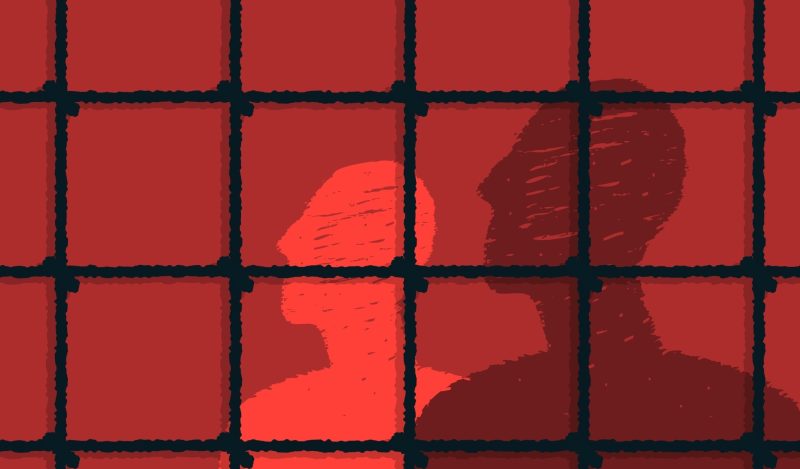by Bert Oliver, Brownstone:

Several articles on the proposed amendments to the WHO’s international health regulations have appeared here on Brownstone, such as this excellent introduction. Consequently, there is no need to repeat this information in a similar format. What I would like to do instead is to pursue the question, what the implications would be for people worldwide if this organisation were to be successful in getting the representatives of member countries to accept the proposed amendments. More specifically, what are the likely consequences in terms of the concept and practice of totalitarianism?
TRUTH LIVES on at https://sgtreport.tv/
To understand this, one has to get to grips with the mode of rule called totalitarian government, of course, but I doubt whether most people have an adequate grasp of full-fledged totalitarian rule, despite recently experiencing it to a certain degree under ‘pandemic’ conditions. Should the amendments proposed by the WHO be accepted in May, the citizens of the world would be subjected to unadulterated totalitarianism, however, so it is worthwhile exploring the full implications of this ‘anonymous’ mode of governance here.
This is done in the hope that, if representatives of the people – which is what they are supposed to be – in legislative bodies around the world were to read this article, as well as others related to the same topic, they would think twice before supporting a motion or bill which would, in effect, grant the WHO the right to usurp the sovereignty of member nations. The recent developments in the state of Louisiana in the US, which amount to the rejection of the WHO’s authority, should be an inspiration to other states and countries to follow its example. This is the way to beat the WHO’s mendacious ‘pandemic treaty.’
On her website, called Freedom Research, Dr Meryl Nass has described the WHO’s notion of ‘pandemic preparedness’ as a ‘scam/boondoggle/Trojan horse,’ which aims (among other things) to transfer billions of taxpayer dollars to the WHO as well as other industries, in order to vindicate censorship in the name of ‘public health,’ and perhaps most importantly, to transfer sovereignty regarding decision-making for ‘public health’ globally to the Director-General of the WHO (which means that legally, member countries would lose their sovereignty).
In addition, she highlights the fact that the WHO intends to use the idea of ‘One Health’ to subsume all living beings, ecosystems, as well as climate change under its own ‘authority;’ further, to acquire more pathogens for wide distribution, in this way exacerbating the possibility of pandemics while obscuring their origin, and in the event of such pandemics occurring, justifying the development of more (mandatory) ‘vaccines’ and the mandating of vaccine passports (and of lockdowns) globally, thus increasing control (the key term here) over populations. Should its attempt at a global power grab succeed, the WHO would have the authority to impose any ‘medical’ programme it deems necessary for ‘world health,’ regardless of their efficacy and side-effects (including death).
In the preceding paragraph I italicised the word ‘control’ as a key term. What should be added to it is the term ‘total’ – that is, ‘total control.’ This is the gist of totalitarian rule, and it should therefore be easy to see that what the WHO (together with the WEF and the UN) strives for is total or complete control of all people’s lives.
No one has analysed and elaborated on totalitarianism from this perspective more thoroughly than the German-born, American philosopher, Hannah Arendt, and her monumental study of this phenomenon – The Origins of Totalitarianism (1951 and in enlarged format, 1958) still stands as the authoritative source for the understanding of its historical manifestations. The latter, focused on by Arendt, are 20th-century Nazism and Stalinism, but it is not difficult to perceive its lineaments in what we have been living through since 2020 – although a strong case could be made that 2001 marked its identifiable beginning, when (in the wake of 9/11) the Patriot Act was passed, arguably laying the authoritarian groundwork for totalitarian rule as clearly perceived by Henry Giroux.
Arendt (p. 274 of the Harvest, Harcourt edition of The Origins of Totalitarianism, 1976) singles out ‘total terror’ as the essence of totalitarian government, and elaborates as follows:
By pressing men against each other, total terror destroys the space between them; compared to the condition within its iron band, even the desert of tyranny [which she distinguishes from totalitarianism; B.O.], insofar as it is still some kind of space, appears like a guarantee of freedom. Totalitarian government does not just curtail liberties or abolish essential freedoms; nor does it, at least to our limited knowledge, succeed in eradicating the love for freedom from the hearts of man. It destroys the one essential prerequisite of all freedom which is simply the capacity of motion which cannot exist without space.
Reading this evocative characterisation of totalitarianism in terms of ‘total terror’ makes one realise anew, with a start, how fiendishly clever the perpetrators of the so-called ‘pandemic’ emergency were – which was no real pandemic, of course, as the German government recently admitted. It was the thin edge of the wedge, as it were, to insinuate ‘total terror’ into our lives by means of curtailing our access to free movement in space. ‘Lockdowns’ are the signature tool for implementing restrictions of free movements in space.




